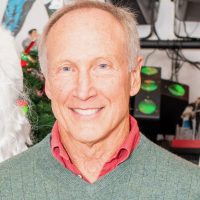For people who think self-help programs exist just for people needing help, let me give you another perspective.
My self-learning process began in high school as I questioned many of my beliefs.
For example, how could something that feels good, like sex, be wrong? After experiencing a broken heart, my questioning expanded: Does loving have to lead to being hurt?
In college, two authors came to my attention: Fritz Perls and J. Krishnamurti. One promoted being aware of what I’m feeling now, the other encouraged looking within for my own answers.
Inspired, I took action, attending interactive programs nearby and traveling to California to listen in person. This could be called my beginning into self-help, but it wasn’t. These experiences encouraged a “do-it-myself” attitude.
During the program, we were given a puzzle to solve with toothpicks. As one of the last participants who had not solved the puzzle, I was asked, “Do you want assistance?” That “yes” put me on an active learning path of self-help.
The words “self-help” imply being helpless, and, as human beings, we are not. Rather, the experiences of growth, learning, and expansion point more accurately. Assistance also points more precisely than help as expressed by “Give a person a fish and they eat for day. Teach a person to fish and they eat for a lifetime.” Not all people want assistance, but, for those who do, it now exists in abundance.
We each may have our moments of feeling helpless, isolated, or alone, as no other human being can fully understand what we’re experiencing. Yet, all those who have tasted a red, ripe strawberry can share their delight or distaste for the experience and so, I’m sharing my involvement in self-help now.
For myself, engaging in a variety of programs and processes generated a wide variety of experiences and realizations. I’ve witnessed others willing to look within themselves, clarify what they choose to believe, and act from that clarity. The term “transformation” circles through the vocabulary of those engaging in these various forms of learning.
Physics points out energy can not be created nor destroyed but simply changes form. The intelligent, energetic foundation of our life cooperates with our desire to learn and grow, whether we call it self-help or not.
Meditation serves this self-learning process directly, as the meditator turns his/her attention to his/her inner life. The intent in meditating influences the experience.
When I first began, I thought the goal of stillness served me best. Studying the research completed on meditation over the last 15 years, I discovered stillness isn’t necessary. The studies demonstrated that when subjects meditated using methods such as simply following their breath with their attention for 12 to 15 minutes per day, in eight weeks time structures in the brain became activated that generated experiences such as less anxiety, less depression, more compassion for self and others, and more clarity—”self-help” in a simple form.
Currently in the United States, the costs of treating disease keep rising.
In 1991, the HeartMath Institute began studying the electromagnetic and other characteristics of the heart, including the existence of brain cells within heart tissue. They identified that a person’s heart can beat coherently or not. When people were taught to consistently allow their hearts to beat coherently, maladies such as hypertension, arrhythmias, autoimmune disorders, sleep disorders, chronic fatigue, and several others improved.
Also during their study, this finding: when subjects were shown images that encouraged calmness and other images that provoked stress, the heart responded measurably different to each type of image. Amazingly, the heart responded four seconds before the image came on the screen. The conclusion drawn is that the heart has access to information beyond time and space. Self-help or personal growth can revolutionize our healthcare, broaden our educational beliefs, and create possibilities we’ve not yet considered.
Besides help versus assistance, let me address the “self,” also called ego. This self thinks it’s a body, a mind, a name, a role, and so on.
Because of my desire to help myself and others, I thought the ego needed to be somehow set aside or transcended using other “enlightened” beings as the examples to emulate. I had the idea that enlightenment happened to you and then, shazam, a person lived simply as a conduit for higher intelligence with personal desires set aside. This may be what happens for some.
As a result of my effort toward such an experience, I felt resentment toward myself because of my failure to meet my standards, which I had borrowed from others. So I decided to let myself be, and fostered the desire to love myself as unconditionally as possible. In other words, whatever stupid thing I might do, eventually I’d joyfully accept myself.
Early in my growth experiences, joyful acceptance had been spoken as one view of love. Knowing joy since childhood, I knew I could foster and have that experience. It’s not a one-and-done process, but a lifelong one, a learning, in the moment, that happens again and again. As I experience this, joyfully accepting others happens too.
I imagine a world full of people joyfully accepting themselves and others, with each of us moving toward experiencing her/his dreams and desires. In looking at the world, especially the natural world, when filled with joy and acceptance, I view beauty, intelligence, and well-being in abundance. This gives me an optimistic vision for the future of humanity, thanks to saying “yes” to learning and “helping” myself.
In sharing my perspective of self-help, I hope the reader may view it in a more positive light. Though not for everyone, active personal growth works for people who desire to clarify their beliefs and take clear action. Being open-minded, learning happens and, as Eric Hoffer wrote, “In times of change, learners inherit the earth, while the learned find themselves beautifully equipped to deal with a world that no longer exists.”











Read 0 comments and reply